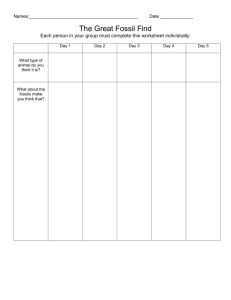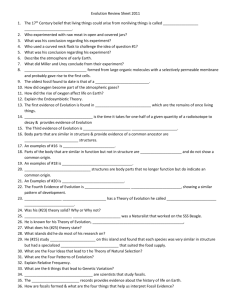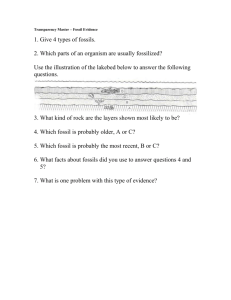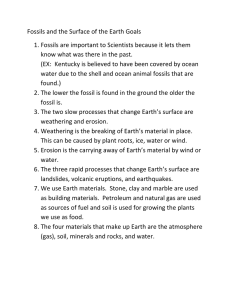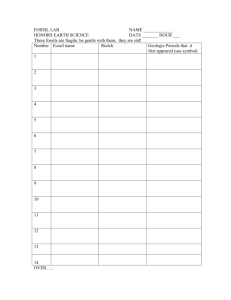Fossils
advertisement
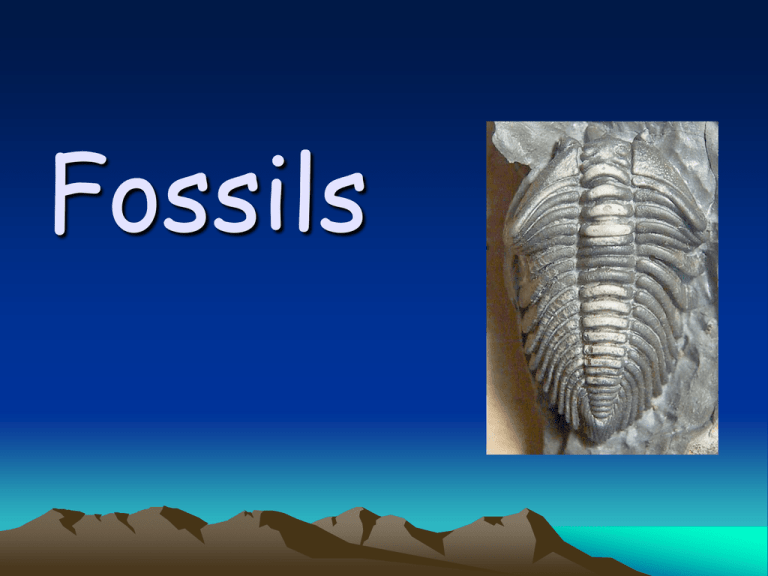
Fossils What is a fossil? A fossil is an impression, cast, original material or track of any animal or plant that is preserved in rock after the original organic material is transformed or removed. A fossil may be: • an original skeleton or shell; • a mold or cast; • material that has replaced the once living thing; • traces such as footprints or worm tubes What conditions promote fossilization? • Hard body parts such as skeletal bones or exoskeletons What conditions promote fossilization? • Rapid burial and/or lack of oxygen What are the fossil types? • Body fossils – actual parts of an organism, unaltered or altered bones, shells, leaf imprints • Trace fossils – evidence of life that is not a body fossil tracks, burrows, casts Body fossils Trace Fossils What are the modes of fossil preservation for body fossils? Unaltered Original Material - original, unaltered material from the living organism unaltered bone or shell Encrustations or entombments – material is trapped inside coating such as amber What are the modes of fossil preservation for body fossils? Unaltered Mummification - quickly dried material Refrigeration – material is trapped inside ice and tissue is preserved What are the modes of fossil preservation? • Altered Permineralization – pores in tissue are filled by minerals Replacement – replacement of tissue with minerals What are the modes of fossil preservation for body fossils? • Altered Carbonization – tissue material is decomposed or reduced to a film of carbon More on trace fossils • Mold – reproduction of the inside or outside surface of a living thing • Cast – duplicate of the original organism; usually formed by replacement of inside of living thing More on trace fossils • Burrows or borings – Spaces dug out by living things and preserved as is or filled in More on trace fossils • Gastroliths – smooth stones from abdominal cavity of dinosaurs • Coprolites – fossilized excrement; usually preserved by replacement More on trace fossils • Tracks – impressions of passage of living things
